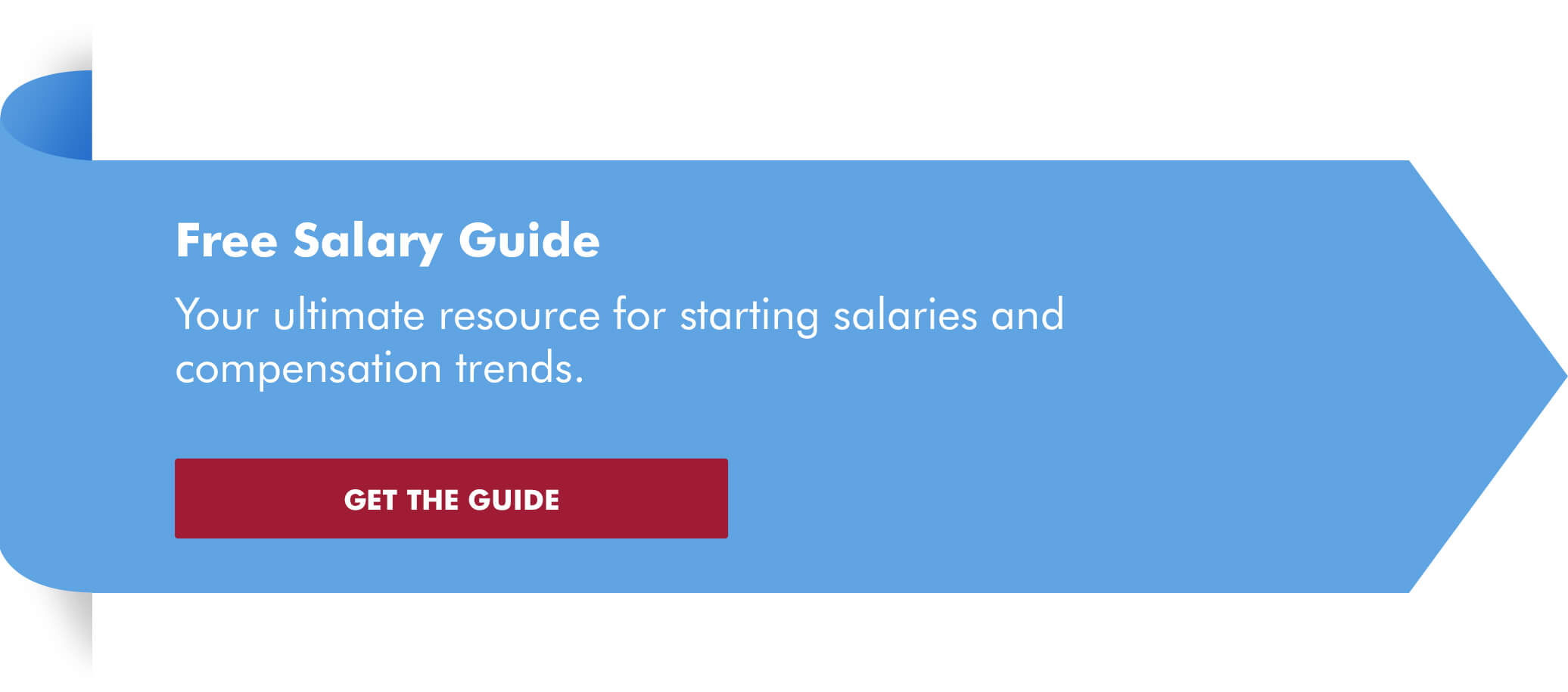You need to hire a senior accountant — fast. Without someone to supervise accounting staff and bookkeeping efforts, prepare financial statements, and analyze balance sheets and income statements, your business is at risk of not operating optimally.
But do you know how to hire a senior accountant? That is, do you know what strategies and resources you can use to secure a top candidate for your firm quickly?
It’s essential to have a well-thought-out strategy for hiring a senior accountant, as you will likely face vigorous competition for these professionals — and not just during tax season. According to the latest Salary Guide From Robert Half, senior accountants are among the most in-demand accounting and finance professionals for 2024.
Here are a few tips to help you streamline your search for a standout senior accountant:
1. Write a senior accountant job description that’s on point
Job descriptions are tricky. You want to be as specific as possible, so you can attract professionals who have the skills and experience your business needs. But you don’t want to be so exacting that you alienate promising candidates who, with some training and development, could master the position’s core responsibilities in relatively short order.
So, aim for balance in the information you present in the senior accountant job description. You’ll likely want to note that you’re searching for a professional with three years of general accounting experience and at least a bachelor’s degree in accounting, finance, business administration or a related field. That’s typical experience for this role. You might also note whether you prefer candidates who have earned accreditations, such as a CPA or a certified management accountant (CMA) designation.
Beyond that baseline criteria, outline the job responsibilities and required qualifications. Are you seeking an accounting professional with in-depth knowledge of accounting principles and technology, financial statements, risk assessments, and budgets? Make that clear. Taking the extra step to be more specific about the skills and knowledge a candidate needs to succeed in the role will help attract professionals who are well-suited for the position.
But again, be careful with how much detail you include in the job description. Think hard about which qualifications are must-haves or nice-to-haves for the senior accountant role you need to staff. Be realistic — but also try to be flexible.
2. Offer a snapshot of your company’s work environment
The senior accountant job description should also provide insight into your organizational culture and what it’s like to work for your company, generally. Do you offer flexible scheduling or remote work arrangements, for example? Know that 78% of U.S. workers consider flexible work schedules a top perk, while 63% would like to have remote work options, according to research for our latest Salary Guide.
Also, what training, professional development and career advancement opportunities does the company offer? What are your organization’s core values? And what steps is the business taking to promote diversity, equity and inclusion?
You don’t have to go overboard with details, but at least provide an idea of what your company is all about. This type of information can help you stand out to candidates as an employer of choice.
3. Cover more ground by working with a specialized recruiter
A talent solutions firm can help you craft an effective job description — and assist with so much more in your search for a senior accountant. Well-connected recruiters know the candidate marketplace in your industry and geographic area. They can also effectively evaluate a candidate’s skills and experience.
Plus, specialized recruiters can tap their extensive networks and draw on talented professionals who aren’t aware of your open position and may not even be looking for a new job. Many senior accountants are content in their current roles but would potentially be willing to move for the right opportunity. These are the passive job seekers the recruiting professionals with a leading talent solutions firm can help you to find — and target.
Need to hire a senior accountant who can work remotely? Learn more about Robert Half’s remote talent solutions.
4. Offer a competitive salary and benefits package
If you want to hire (or retain) a highly skilled senior accountant, you must also be prepared to offer competitive compensation. Review leading industry resources like Robert Half’s Salary Guide to stay current on salary and hiring trends.
The latest Salary Guide will provide details about how to better determine what to offer when preparing your senior accountant salary offer, and you can consult the Robert Half Salary Calculator to get more information about salary ranges in your particular geographic area.
Also, be sure to outline to potential hires the bonuses, perks and other incentives your firm provides, as those offerings are valuable, too — and they can be difference-makers for in-demand candidates deciding whether to join your firm. As reported in our Salary Guide, health insurance, paid time off and retirement savings plans are among the top benefits many workers are seeking right now.
5. Interview for hard and soft skills
Today’s dynamic, technology-driven, and remote or hybrid work environments require professionals to have a strong balance of technical and interpersonal skills. So, when interviewing candidates for the senior accountant role, you’ll want to ask questions that can help you get a good sense of a candidate’s abilities on both fronts.
You can use accounting interview questions like, “What accounting software are you most familiar with?” to assess a potential hire’s technical knowledge. You may want to use the interview process to determine whether a candidate is up to date with tax code changes, what their experience is in completing complex financial projects with tight deadlines, or how they go about preparing budgets.
The interview is also your opportunity to assess a potential hire’s confidence, work ethic, ability to work well with or manage others, and more. Behavioral questions such as, “Give me an example of a time when you had to explain something complex to a client, customer or coworker,” or “How would you respond to a client who insisted you made an error?” are useful for evaluating communication skills, problem-solving abilities, a customer service mindset, adaptability and other soft skills.
6. Follow up with professional references
Don’t dismiss this part of the hiring process for your new senior accountant as a mere formality — it’s an essential step toward hiring with confidence. Checking professional references can help you expand your understanding of a candidate’s professional qualifications and attributes. You can also get more insight into your potential hire’s contributions to previous employers.
Perhaps you want to learn more about a technical skill or strength the candidate possesses. As part of a reference check, you might ask a former manager: “I understand Emma handled budget preparation and analysis for your company. Can you tell me more about her duties as a staff accountant?”
Then, you could take it a step further by asking about a potential limitation, such as how the candidate might perform in a more senior role: “Emma hasn’t had any experience managing accounting staff, which is part of the senior accountant’s job at our firm. How do you think she’ll perform as a manager?”
The strategies outlined above can help you to be both swift and thorough in your search for a senior accountant. They can also help prevent you from overlooking a diamond in the rough who, with a little polishing, could prove to be your firm’s best senior accountant hire yet.








